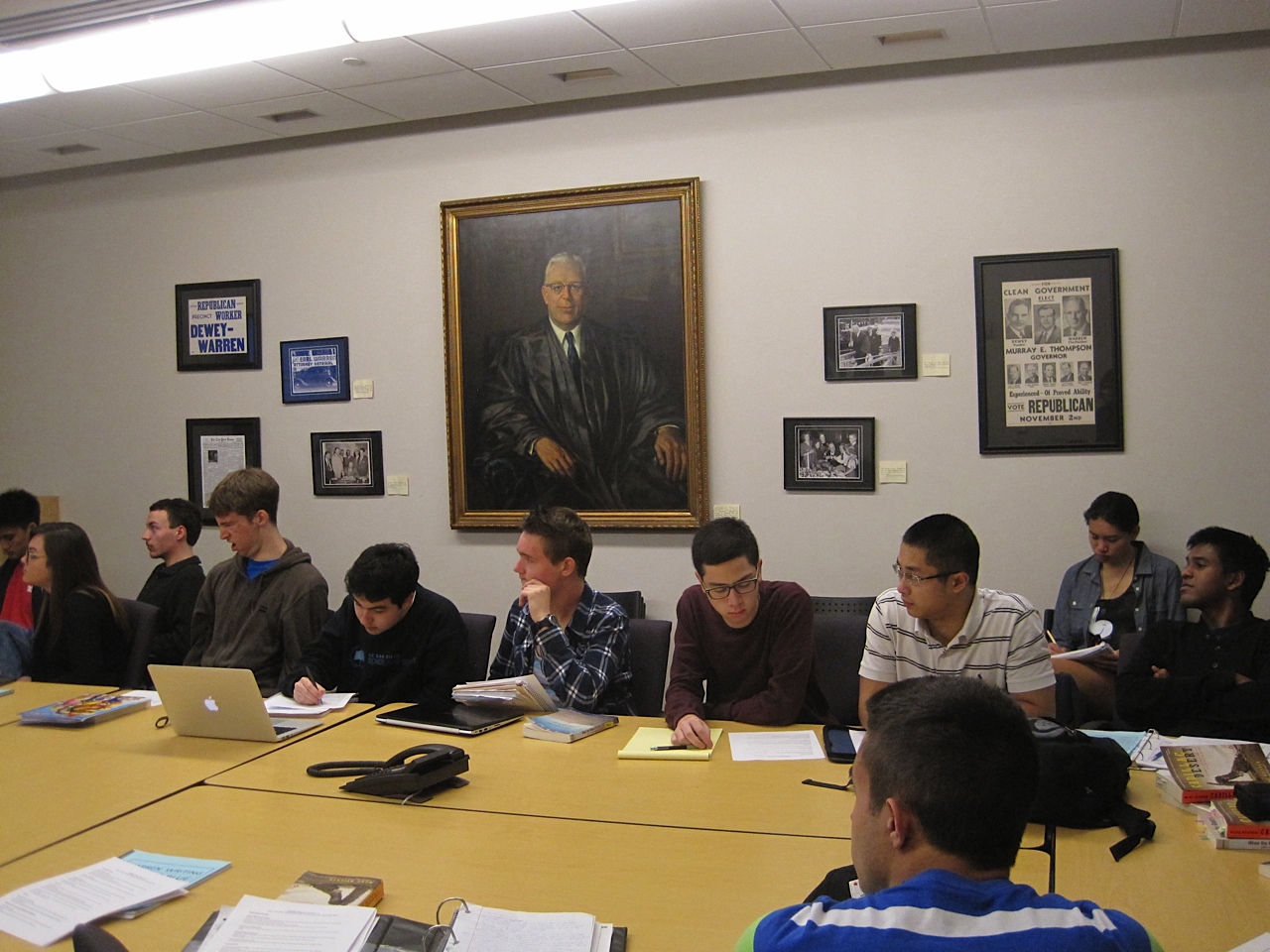Courses
- WCWP 10A
- WCWP 10B
- WCWP 100 (Transfer Students)

Our second course in the Warren Writing sequence follows a theme-based approach inspired by the college motto, “Toward a life in balance.”
Using the theme as a starting point, students explore big, interdisciplinary problems and open-ended questions that are meaningful to them and that spark their curiosity. Through writing, students engage in a process of questioning, research and discovery, revealing that writing itself can be a powerful way of learning. They work individually and in groups, supporting and challenging one another to research and communicate new ideas and deepen their perspectives. Students analyze how their discoveries affect people and communities, while reflecting on their changing views as they write. In their final capstone project, students communicate their research insights to real world audiences by applying writing strategies and concepts they have learned in both courses.
Professor Simrita Dhir
Professor Tricia Ornelas
Sarah Callahan, Bibi Renssen, Sophia Zummo, and Katelyn Meyer
Professor Jeff Gagnon
Professor Emma Uriarte
Professor Walter Merryman
|
Sect |
Day |
Time |
Room |
Instructor |
Theme |
|---|---|---|---|---|---|
| 001 | MW | 8:00AM - 9:20AM | WSAC 132 | Emily Windham | What is Beauty? |
| 002 | MW | 9:30AM - 10:50AM | WSAC 132 | Emily Windham | What is Beauty? |
| 003 | MW |
11:00AM - 12:20PM |
EBU3B 1124 | Jordan Escobar | Our World and Theirs: Humans and Animals |
| 004 | MW | 12:30PM - 1:50PM | EBU3B 1124 | Walter Merryman | Wealth Inequality, Opportunity, and American Dreams |
| 005 | MW | 2:00PM - 3:20PM | EBU3B 1124 | Jordan Escobar | Our World and Theirs: Humans and Animals |
| 006 | MW | 3:30PM - 4:50PM | EBU3B 1124 | Walter Merryman | Wealth Inequality, Opportunity, and American Dreams |
| 007 | MW | 5:00PM - 6:20PM | EBU3B 1124 | Walter Merryman | Wealth Inequality, Opportunity, and American Dreams |
| 008 | TTh | 12:30PM - 1:50PM | EBU3B 1124 | Emma Uriarte | Food: Identity, Belonging, Justice |
| 009 | TTh | 2:00PM - 3:20PM | EBU3B 1124 | Emma Uriarte | Food: Identity, Belonging, Justice |
| 010 | TTh | 9:30AM - 10:50AM | WSAC 101 | Jill Martiniuk | Humanity, Technology, and the Digital Self |
| 011 | TTh | 11:00AM - 12:20PM | WSAC 101 | Jill Martiniuk | Humanity, Technology, and the Digital Self |
| 012 | TTh | 12:30PM - 1:50PM | WSAC 101 | Mathew Holloway | Surviving Modernity: Resilience, Meaning, and Human Life in the Technological Era |
| 013 | TTh | 2:00PM - 3:20PM | WSAC 101 | Jill Martiniuk | Humanity, Technology, and the Digital Self |
| 014 | TTh | 3:30PM - 4:50PM | WSAC 101 | Mathew Holloway | Surviving Modernity: Resilience, Meaning, and Human Life in the Technological Era |
| 015 | TTh | 5:00PM - 6:20PM | WSAC 101 | Mathew Holloway | Surviving Modernity: Resilience, Meaning, and Human Life in the Technological Era |
| 017 | TTh | 8:00AM - 9:20AM | EBU3B 1124 | Simrita Dhir | The Storyteller's Craft: Building a World Through Stories |
| 018 | TTh | 9:30AM - 10:50AM | EBU3B 1124 | Simrita Dhir | The Storyteller's Craft: Building a World Through Stories |
** If viewing on a phone, please turn it horizontal.
How Scholars Write by Aaron Ritzenberg and Sue Mendelsohn
The above textbook and all other course reading material can be purchased or found on the Canvas learning modules.